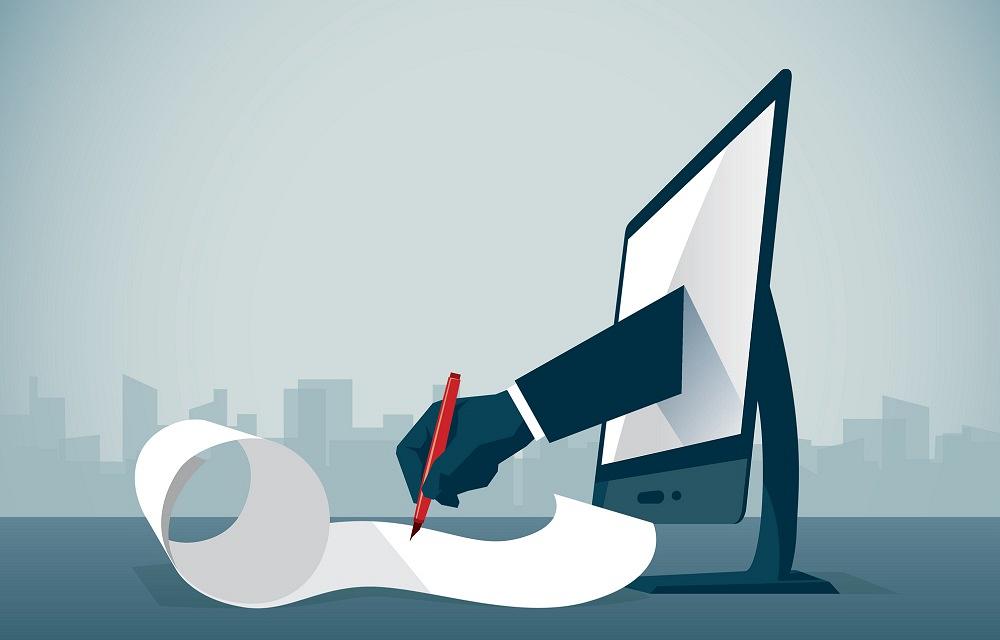President
- FMA
- The Fabricator
- FABTECH
- Canadian Metalworking
Categories
- Additive Manufacturing
- Aluminum Welding
- Arc Welding
- Assembly and Joining
- Automation and Robotics
- Bending and Forming
- Consumables
- Cutting and Weld Prep
- Electric Vehicles
- En Español
- Finishing
- Hydroforming
- Laser Cutting
- Laser Welding
- Machining
- Manufacturing Software
- Materials Handling
- Metals/Materials
- Oxyfuel Cutting
- Plasma Cutting
- Power Tools
- Punching and Other Holemaking
- Roll Forming
- Safety
- Sawing
- Shearing
- Shop Management
- Testing and Measuring
- Tube and Pipe Fabrication
- Tube and Pipe Production
- Waterjet Cutting
Industry Directory
Webcasts
Podcasts
FAB 40
Advertise
Subscribe
Account Login
Search
Using pen and paper to self-assess your career capabilities and skills
Put digital technologies aside for a moment, and sit right down to write yourself an old-fashioned letter
- By Bill Frahm
- September 9, 2019
- Article
- Automation and Robotics

Even in this era of advanced technology and digital integration, two of the most effective self-assessment tools are still old-school pen and paper. Getty Images
Let’s take a little break from discussing IoT.
The success of any initiative depends on the abilities of the people who produce product; maintain equipment; and manage the supply of input stock, lubricants, and parts. Now is the time to honestly assess your own skills. Both your own value and that of your technology depend on your understanding of materials, production, and equipment reliability.
When was the last time you sat down with a pen and wrote an entire page of complete sentences and paragraphs? I’m not talking about technical papers and reports, but a complete stream of your thoughts and feelings about something? A number of studies confirm that writing with pen and paper, rather than typing, sparks creativity, encourages you to focus, and improves your ability to remember.
How does this relate to your career in sheet metal forming? The business and technology of turning sheet metal into formed components are in an era of dramatic change. Advances in materials, forming technologies, and information technologies continue to challenge traditional practices. Meaningful advances in your career and capabilities requires an honest assessment of your current strengths and weaknesses measured against the talents required by today’s environment. As Maya Angelou said, “You can't really know where you are going until you know where you have been.” Or, as Yogi Berra said, “If you don't know where you are going, you'll end up someplace else.”
Rediscovering Old-school Writing
Several weeks ago my college roommate, Gerard, invited me to his daughter’s ceremony to take her perpetual vows as a Dominican nun in Ann Arbor, Mich. Being that they are all from Louisiana, and LSU graduates, I couldn’t turn down the opportunity.
After the ceremony, I met my roommate’s family priest, Father Francis. Father Francis also is a Korean War veteran. Needless to say, he has many years of life under his belt. We spoke at length about our pasts, realizing that we have shared similar challenges. Both of us have cared for a handicapped loved one, we both had siblings who passed away far too early in life.
A couple weeks after the ceremony, I received a written note from Fr. Francis. I felt satisfaction in receiving something in the mail that wasn’t a bill or junk. On opening and reading the letter, I remembered how much a handwritten letter can express things a text or email cannot.
A number of studies have determined that writing with a pen encourages focus while reinforcing learning and memorization. Putting a pen to paper is a singularly focused exercise that allows you to express yourself creatively without the distractions presented by technology. There are no ads, notifications, or technology issues on a piece of paper. Old-school writing is just you, your thoughts, your vocabulary, and two simple and ancient tools.
Applying Writing to Your Career
All of us need to assess our knowledge and skills as our industry evolves. There are many checklists and forms designed to support self-assessment. The problem with checklists is that they force you to respond to someone else’s generic question about your skills. They mostly fail to develop a true connection to your confidences, insecurities, and experiences. The form itself becomes a distraction that places your focus on answering a question rather that connecting your experiences, successes, and failures to your competencies and needs for additional knowledge.A technique that works for me is to maintain a notebook to record my experiences with my projects and colleagues. As new experiences emerge, I write several paragraphs defining the project, what I believe my greatest contribution will be, what components I am uncomfortable with, and how I plan to address my discomforts.
Some of the topics you should address include:
- The nature of the project.
- Your confidence level with your ability to support the project.
- The skills you are most confident about.
- The skills you are least confident about.
- How you will use your strengths to support the project’s success.
- How you will improve those skills where you lack confidence.
- Your plan for improvement.
Obviously, this is a very personal document. You can choose whether you wish to share your results with others. You should, however, be open with your management about your plans to improve your skillset.
As issues arise in forming operations, you will discover challenges to your knowledge and expertise. What variables could cause your AHSS component to split? Why are you getting wrinkling? How do you design for springback? These are both challenges and learning opportunities. When you continuously recognize and respond to training shortcomings, you will be on your way to becoming a leader and enjoying your job and profession much more.
About the Author

Bill Frahm
P.O. Box 71191
Rochester Hills, MI 48307
248-506-5873
subscribe now

The Fabricator is North America's leading magazine for the metal forming and fabricating industry. The magazine delivers the news, technical articles, and case histories that enable fabricators to do their jobs more efficiently. The Fabricator has served the industry since 1970.
start your free subscription- Stay connected from anywhere

Easily access valuable industry resources now with full access to the digital edition of The Fabricator.

Easily access valuable industry resources now with full access to the digital edition of The Welder.

Easily access valuable industry resources now with full access to the digital edition of The Tube and Pipe Journal.
- Podcasting
- Podcast:
- The Fabricator Podcast
- Published:
- 04/16/2024
- Running Time:
- 63:29
In this episode of The Fabricator Podcast, Caleb Chamberlain, co-founder and CEO of OSH Cut, discusses his company’s...
- Trending Articles
Capturing, recording equipment inspection data for FMEA

Tips for creating sheet metal tubes with perforations

Are two heads better than one in fiber laser cutting?

Supporting the metal fabricating industry through FMA

Hypertherm Associates implements Rapyuta Robotics AMRs in warehouse

- Industry Events
16th Annual Safety Conference
- April 30 - May 1, 2024
- Elgin,
Pipe and Tube Conference
- May 21 - 22, 2024
- Omaha, NE
World-Class Roll Forming Workshop
- June 5 - 6, 2024
- Louisville, KY
Advanced Laser Application Workshop
- June 25 - 27, 2024
- Novi, MI


























